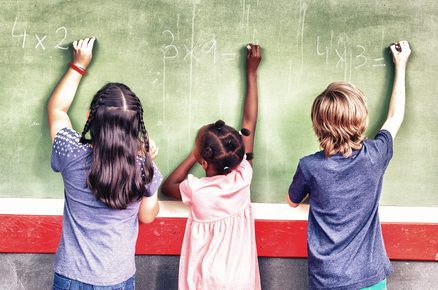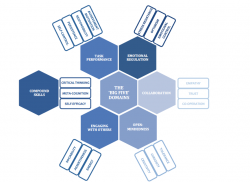
Expanding the traditional focus on cognitive skills to embrace social and emotional ones
by Pisana Ferrari – cApStAn Ambassador to the Global Village
The challenges posed by our current fast-paced, mobile, complex and multicultural world require using increasingly diverse sets of skills. Studies such as the Programme for International Student Assessment (PISA) and the Programme for the International Assessment of Adult Competencies (PIAAC), have shown that social and emotional skills are related to important educational, work and life outcomes and that they can be assessed meaningfully within and across cultural and linguistic boundaries.(1) The OECD is taking this work further with a comprehensive international assessment of school-age children through the Study on Social and Emotional Skills (SSES). (2). Its aim is to develop a comprehensive set of metrics designed to enhance policies to improve the development and well-being of children. A recent paper reviews the literature on this topic and provides a conceptual framework for the SSES.(3)
According to the authors of the paper, social and emotional skills are “malleable” and change with biological maturation, environmental influences (family, school, community), individual effort and the occurrence of important life events. Evidence indicates that planned and systematic interventions aimed at improving them can be successful. “It is therefore critically important to expand the traditional policy focus on cognitive skills and to embrace a more holistic approach by better supporting children and adults in developing and nurturing social and emotional skills”.
A very important part of the authors’ work was defining which skills should be measured. Many factors had to be taken into consideration, including the skills’ predictive value, their relevance to the particular age group (10 and 15 years of age)(4), the comparability across different cultures, languages, social and schooling contexts and the usefulness for the future. Nineteen social and emotional skills were chosen for inclusion in the SSES. These skills were grouped in five broad domains: task performance, emotion regulation, collaboration, open-mindedness and engagement with others. Some of the skills in the sub-domains are more predictive of outcomes in school and work, others more of quality of relationships and societal integration, others still of quality of life and personal self-development. Skills representing a combination of multiple individual skills, such as critical thinking, meta-cognition and self-efficacy were also found to have strong relevance for a range of life events and achievements.
The paper concludes that social and emotional skills represent an important, but often neglected, subject of policy interest and that “by supplementing information about students’ social and emotional skills to existing information about their academic and cognitive skills, the study will give policy makers, education leaders and other stakeholders improved understanding of whole-child development”. In this way the SSES findings will be able to be used by the relevant national stakeholders to review/adopt policies that better support the development of these skills.

[Figure 7.1 from the cited study (3), page 108]
Notes:
1) cApStAn has been responsible for ensuring linguistic equivalence of all language versions of OECD/PISA since its inception; it has also been involved in PIAAC’s 1st cycle and has recently been reconfirmed as part of the consortium for the 2nd cycle.
2) http://www.oecd.org/education/ceri/study-on-social-and-emotional-skills-the-study.htm
3) Chernyshenko, O., M. Kankaraš and F. Drasgow (2018), “Social and emotional skills for student success and well-being: Conceptual framework for the OECD study on social and emotional skills”, OECD Education Working Papers, No. 173, OECD Publishing, Paris. http://dx.doi.org/10.1787/db1d8e59-en.
4) The two different age groups allow for comparison across different developmental stages.